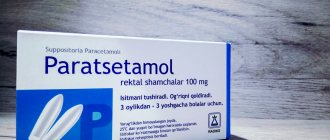Is it possible to endure pain?
Many mothers are of the opinion that it would be better for them to somehow distract themselves from unpleasant sensations, but not take pills.
The meaning here is simple: any pills can harm the baby’s body, especially during the formation of all organs and systems. But doctors object that enduring pain is harmful not only for the mother, but also for the baby. Therefore, you need to go to the hospital in a timely manner and undergo an examination. This is the only way you can find out the cause of the sensations that bother you. Then the doctor will select medications to correct them.
Painkillers during pregnancy are necessary because stress hormones are otherwise produced. It is passed on to the baby. Needless to say, this is completely unnecessary now! Moreover, it acts on the muscles of the uterus, so it can cause a miscarriage.
Drugs for thrush during pregnancy
High levels of estrogen and low immunity create a favorable environment for the proliferation of Candida fungus. What drugs work well against fungal infections? Diflucan is considered the most effective. However, the drug is not on the list of safe drugs for expectant mothers. You can treat thrush during gestation with the help of suppositories, depending on the stage of pregnancy: (we recommend reading: suppositories for the treatment of thrush during pregnancy)
- In the early months, to eliminate the symptoms of thrush, doctors recommend that pregnant women use Betadine, Pimafucin, Ecofucin (see also: Pimafucin suppositories: instructions for use during pregnancy). These medications are gentle and cause less harm to the fetus than other anti-candidiasis medications.
- In the second and third trimesters, women are prescribed Clotrimazole, Zalain, Terzhinan, Livarol, Nystatin, Ginofort suppositories or ointments (see also: Clotrimazole suppositories and ointment: rules for use during pregnancy).
In any month, the use of medicinal tampons soaked in borax in glycerin is allowed. This remedy is practically not absorbed by the mucous membrane, therefore it is considered safe for mother and child.
Ginipral
Ginipral is a drug that reduces the tone and contractile activity of the uterus due to its effect on receptors that relax smooth muscle cells (beta2-adrenergic receptors).
The drug is used for threatening premature birth. Until 26 weeks, beta-adrenergic receptors are not sensitive and the drug is ineffective. Sometimes it is prescribed already during childbirth when there is incoordination of labor (excessively strong contractions of the uterus and at the same time weak opening of the cervix).
Side effects sometimes occur when using ginipral. Possible headache, dizziness, slight increase in heart rate, decreased blood pressure, sometimes pain in the heart area, nausea, diarrhea. When using ginipral, swelling of the legs may increase and the amount of fluid released may decrease, especially if kidney function is impaired. In addition, fetal heartbeat disturbances (tachycardia, arrhythmia) are sometimes possible. After discontinuation of the drug, side effects quickly disappear.
The drug is contraindicated for cardiac arrhythmias with tachycardia, heart defects, severe liver and kidney diseases, premature placental abruption, thyrotoxicosis, intrauterine infection, polyhydramnios, and fetal cardiac dysfunction. When using ginipral in large dosages, it is recommended to monitor the mother's pulse and blood pressure and the heartbeat of the mother and fetus.
If the mother's tachycardia is more than 130 beats/min and with a pronounced decrease in blood pressure, the dose of the drug must be reduced; if difficulty breathing and pain in the heart appear, the drug must be discontinued.
The drug is not used in the first trimester of pregnancy. It is most advisable to take it in the third trimester to treat threatened premature birth. Initially, the drug is usually prescribed in the form of a dropper; after the symptoms are relieved, the threat is switched to tablet form. If the symptoms of threatened miscarriage are not very pronounced, the drug can be immediately prescribed in tablets.
Simultaneous use with calcium and vitamin D preparations negates the relaxing effect of ginipral on the myometrium (uterine muscle). Some drugs that lower blood pressure reduce the effect of ginipral. But some anti-asthmatic drugs can increase the side effects of the drug. Coffee and tea can also increase side effects.
List of healthy foods for pregnant women
Dairy
They combine calcium and easily digestible protein, as well as phosphorus, B vitamins, zinc and magnesium. Doctors recommend consuming dairy products with a normal fat content of 2.5 - 3.2%. The most beneficial is natural yogurt without additives. It is lactose-free and contains probiotic bacteria that improve digestion and reduce the risks of diabetes, allergies and infections.
Nuts
Nuts contain a lot of substances that are beneficial for a pregnant woman:
- fatty acid;
- inulin;
- iodine;
- zinc;
- iron and others.
Nuts are filling and energizing, but they are high in calories and difficult to digest. You are allowed to eat up to 30 grams per day (this is approximately 5-6 walnuts). The most valuable are almonds, cashews, hazelnuts and walnuts and pine nuts, while peanuts can cause allergies. For better digestibility of nuts and seeds, they should be soaked for a couple of hours. Soaking reduces phytic acid levels.
Fish and seafood
A pregnant woman should be extremely careful when eating fish and seafood. They can be potentially dangerous due to the content of toxins and pathogenic microorganisms and cause allergies.
However, river and some varieties of fatty sea fish are recommended for consumption in the amount of 2-3 servings per week. They saturate the body with protein, omega-3, phosphorus, calcium iodine and other beneficial substances.
Fish oil from Teska liver is of great value. One tablespoon of the product contains the daily dose of vitamins D, A and omega-3.
Meat and offal
These products are a source of protein, iron, B vitamins and choline. All of them are vital for the expectant mother and fetus to be healthy. It is better to give preference to dietary meats: turkey, rabbit, lean beef, chicken, lamb and pork. It is better to prepare them by boiling, stewing, baking and combining them with green vegetables and salads.
Eggs
Eggs contain many useful substances:
- high quality protein;
- choline, which reduces fetal neural tube defects;
- healthy cholesterol;
- a wide range of vitamins, macro and microelements.
Eggs are nutritious, perfectly satisfy hunger and have a relatively low calorie content. However, they should be consumed only in cooked form, avoiding raw yolks as they can cause salmonellosis.
Vegetables
Vegetables should make up half of a pregnant woman's diet. They are rich in biologically active compounds. Fiber contained in large quantities stimulates digestion and the growth of beneficial microflora. Doctors recommend consuming at least five servings of vegetables per day, which provides the expectant mother and fetus with all vitamins, micro and macroelements.
Lettuce and spinach
Leafy greens and green vegetables contain many compounds that are beneficial for a pregnant woman:
- antioxidants: vitamins A and C, which protect against free radicals;
- vitamin K, which thins the blood;
- iron and folate, which prevent anemia;
- potassium, good for the heart;
- fiber, which relieves constipation.
It is recommended to combine a serving of leafy greens with each meal.
Fruits and berries
These are sources of vitamins, micro and macroelements, structured water, fiber, glucose and fructose. Fruits and berries provide energy, prevent many deficient conditions, and improve digestion. The berries are low in calories and high in antioxidants.
However, you should be careful when consuming fruits. Many fruits are sweet, cause fermentation in the intestines and lead to extra pounds. Therefore, eat fruits before the main meal, and not for dessert or at least a couple of hours after meals. Exotic fruits can cause allergies in the mother and child in the future, so watch your reaction and eat little.
Legumes
Lentils, chickpeas, beans, soybeans serve as plant resources:
- easily digestible protein;
- folate, which reduces the risk of pathologies of the fetal nervous system;
- iron, which increases hemoglobin levels;
- fiber, which regulates digestion;
- calcium, which strengthens the skeletal system.
Avoid combining animal protein with legumes to prevent bloating.
Flour products
Refined white flour is extremely undesirable for a pregnant woman's diet. It contains only sugar, causing constipation and obesity. It is better for the expectant mother to eat whole grain flour, rich in fiber, B vitamins and microelements. Sweet baked goods should be kept to a minimum.
Cereals
Cereals are the main sources of “slow” carbohydrates. They give energy, nourish, saturate with vitamins, macro and microelements, and improve digestion. Whole grain cereals have the greatest value, while instant cereals have lost some of their beneficial substances during processing. By combining cereals with vegetables, berries, nuts and herbs, you will get not only tasty, but also food rich in biologically active substances.
Mushrooms
Mushrooms contain a lot of protein, carbohydrates, B vitamins, and microelements. However, they can pose a danger to the expectant mother and baby. They often cause poisoning and are difficult to digest. A pregnant woman can include champignons, honey mushrooms, boletus or oyster mushrooms on her menu 1-2 times a week. They must be prepared by boiling, replacing the broth and pre-soaking.
Vegetable and animal oils
The best source of fat is unrefined vegetable oil: olive, sunflower, sesame, flax and pumpkin. They contain vitamin E and unsaturated fatty acids, which cleanse blood vessels of cholesterol and promote the physiological formation of the fetus.
Of the animal fats, the most valuable are omega-3s, which are found in fatty fish. They strengthen the brain and normalize visual function.
What pills can you take during pregnancy for headaches?
The prescription of any medications by doctors depends entirely on their pharmacodynamics and the degree of formation of the placental protection of the fetus. Tablets for headaches during pregnancy must meet safety and effectiveness criteria, which cannot be said about many medications presented in the pharmacy chain. For this reason, expectant mothers should coordinate the use of any medications with their doctor. Answering the question of what pregnant women can do for pain, experts say:
It should be said that Pentalgin and its analogues must be used with caution. These pills for severe headaches during pregnancy are a group of caffeine-containing medications that are often prescribed for spasms caused by migraines.
Such drugs should not be taken in case of gestosis with high blood pressure. Against this background, the use of Paracetamol will seem harmless.
Citramon in the early stages
It is quite safe to treat headaches with this drug, but in the second trimester, when the effect of caffeine on the fetus will be blocked by the placental filter. Citramon quickly helps eliminate severe headaches resulting from vasospasm or low blood pressure. The drug copes well with inflammatory phenomena. Citramon is especially good at helping relieve migraine symptoms.
This drug is one of the relatively harmless drugs, so it can, with reservations, be classified as something you can drink for headaches during pregnancy. The active substance of the product quickly copes with the problem. Ibuprofen is usually classified as a non-steroidal anti-inflammatory drug (NSAID), known for its harmful effects on the gastrointestinal tract. Therefore, you should not get carried away with taking this medicine during pregnancy.
It is important to know that the state of the body after taking Ibuprofen is akin to undergoing a chemotherapy session
Drotaverine, which is the active ingredient of the drug, has a sedative and analgesic effect. No-spa is widely used during pregnancy in neighboring countries as a means of eliminating unwanted uterine tone. However, this drug is banned for use in Europe. If you don’t know which headache pills can be used for pregnant women, then you can try to cure the disease with this remedy, but only after consulting with a specialist. The recommended safe dose for pregnant women is no more than 3 units of the drug per day.
Paracetamol
Treatment with these tablets is considered the most optimal during the period of embryonic development of the fetus in a woman’s body. The expectant mother can take it without fear if she has a headache or fever. The active substance of Paracetamol has a gentle effect on the body of a woman and baby, which allows the use of this medicine before the formation of the placental barrier. The summary of the drug states that its dosage for pregnant women should not exceed 4 tablets per day. The course of therapy can last no more than 3 days.
When should you start?
A balanced diet is the first step to a pregnancy without complications and the birth of a healthy baby. The diet of the expectant mother must necessarily consist of fresh, varied foods: meat, fish, fresh vegetables and fruits, cereals, herbs, berries.
The content of vitamins and minerals in food can provide the female body with everything it needs. You should listen carefully to your own feelings, and under no circumstances ignore sometimes strange gastronomic desires. Perhaps this is a signal from the body about a lack of a specific vitamin. Changes in condition and taste preferences should be reported to your doctor for a more accurate diagnosis and prescription of vitamin support.
The question of when to start taking vitamins is one of the most asked. The main mistake is to start taking it when pregnancy is already a fait accompli. Preparing the body for inevitable changes is an equally important stage, allowing you to avoid many problems in the future. That is why vitamins should be taken at the stage of pregnancy planning.
Particular attention to the amount of vitamins entering the body should be paid in winter and spring, since problems associated with vitamin deficiency are most typical for these seasons. In summer and autumn, when the amount of vegetables, fruits, and fresh herbs consumed is much greater than in winter and spring, the lack of vitamins is replenished with food.
When pregnancy occurs or is planned during the “vitamin deficiency” season, you cannot do without vitamin support with the help of special preparations.
Medicines during pregnancy
Medicines during pregnancy. Expectant mothers are simply lost in choosing this or that medicine, looking at their great variety. Which of them are safe, which are relatively safe, and which are completely contraindicated during pregnancy? The questions are not simple, and we will help you figure them out! Next, we present to you a list of medications during pregnancy, which we have compiled in the form of a table:
hydrocodone(a); hydromorphone(a); diclofenac (b); ibuprofen (b); ketoprofen (b); morphine(a); naproxen (b); oxycodone(a); pethidine(a); piroxicam (b); sulindak (b); fentanyl(a)
penicillins with beta-lactamase inhibitors;
corticosteroids (h) (systemic use);
beclomethasone (inhalation use);
magnesium sulfate (o)
(a) — Long-term use during pregnancy or taking high doses during full-term pregnancy leads to drug dependence in the newborn child.
(b) - Use in the 3rd trimester of pregnancy can cause premature closure of the ductus arteriosus in the fetus and, as a result, persistent pulmonary hypertension in the newborn. Such drugs, in addition, reduce the excitability and contractility of the uterus and can cause post-term pregnancy or stop labor.
(c) - Use in the 3rd trimester increases the risk of postpartum hemorrhage. Long-term use may lead to osteopenia in the mother.
(d) — Contraindicated in the 1st trimester.
(f) - Untreated tuberculosis causes much more severe complications in the mother and fetus than anti-tuberculosis drugs.
(g) - They are not absorbed in the intestine, but with prolonged use in high doses they reduce the absorption of fat-soluble vitamins (A, D, E, K) and due to this they can have a teratogenic effect.
(h) — In case of adrenal insufficiency in the mother, replacement therapy with corticosteroids in doses close to physiological does not have a harmful effect on the fetus and newborn baby. Taking high doses often leads to adrenal insufficiency in the newborn.
(i) - Prescribed in the first months of pregnancy to prevent habitual miscarriage and threatened abortion, as well as to treat corpus luteum deficiency in the early stages of pregnancy.
(j) — The drug of choice for the treatment of thyrotoxicosis in pregnant women.
(l) — Used only for concomitant cardiovascular diseases. Diuretics do not prevent preeclampsia or affect its course, but they do reduce placental blood flow.
(m) - Causes tachycardia in the mother, less often - in the fetus. In addition, hyperglycemia and arterial hypotension are possible in the mother, and hypoglycemia in newborns.
(n) - The dose is reduced, but it should be sufficient to prevent epileptic seizures. All anticonvulsants can have varying degrees of teratogenicity, but status epilepticus and its complications due to drug withdrawal or change are much more dangerous for the mother and fetus than anticonvulsants. For timely detection of malformations in the fetus, ultrasound and examination of amniotic fluid are performed as early as possible.
(o) - Drug of choice for eclampsia.
(p) - The newborn may experience bradycardia (usually occurring in utero), arterial hypotension, hypoglycemia and respiratory depression. Beta-blockers, if possible, are not prescribed in the 1st trimester and are canceled 2 - 3 days before the expected due date.
Interesting materials:
If you want to know everything about pregnancy and childbirth, as well as everything connected with it, then you can find all the necessary information on the website cynepmama.ru.
Do you like the article? Share with your girlfriends and friends!
About the author: beremenaya
Basic Rules
Doctors recommend doing the following:
- Eat balanced. It is important at this time to give up eating habits that are harmful to the body. Thus, convinced vegetarians will cause serious damage to the child’s health if they continue to abstain from eating meat. It is also important to overcome your dislike of dairy products for a while.
- Not to starve. Often women who are afraid of gaining weight limit themselves to food during pregnancy. Doctors prohibit following diets during this period. It is important not to take long breaks between meals. The best option is three meals a day. It means a hearty breakfast, lunch and dinner. Additional snacks between meals are allowed. But it is not forbidden to adhere to a different schedule.
- Don't overeat. The opposite problem of expectant mothers is excessive passion for food. The women are confident that now they should eat for two. People around me encourage this approach. As a result, pregnant women begin to experience digestive problems.
- Refuse junk food. It is better to give up the habit of consuming foods containing dyes and preservatives. The chemicals present in such food negatively affect the development of the unborn baby. If it is not possible to exclude harmful foods from your diet, then it is advisable to reduce their quantity to a minimum.
- Buy quality food. You should not buy vegetables, fruits and dairy products in hypermarkets. Such food contains almost no useful microelements. It is better to try to find trusted natural food sellers and make purchases from them.
What is possible?
Foods that are recommended to be consumed during this period:
- dairy products;
- vegetables and fruits;
- legumes and nuts;
- meat and fish;
- bread;
- natural juices and fruit drinks.
Attention! It is advisable to consume flour products in moderation, since their abuse can contribute to severe weight gain.
What food should you not eat?
It is advisable to completely avoid consuming the following foods:
- chips;
- carbonated drinks;
- fast food;
- crackers with aromatic additives;
- chocolate bars;
- sweets with dyes.
It is recommended to avoid smoked sausage and canned food. These products will not cause serious harm. But consuming them in large quantities will not bring any benefit.
Peculiarity! The main ban is on alcoholic beverages. Since their abuse causes irreparable damage to the child.
For toxicosis
Toxicosis is a specific condition of a pregnant woman in which she experiences nausea and vomiting.
Most expectant mothers encounter characteristic symptoms in the first weeks of pregnancy. For some women, discomfort manifests itself only in mild nausea. Others vomit periodically. However, there are also critical cases. Sometimes, due to constant vomiting, dehydration occurs and the expectant mother has to be hospitalized.
Proper nutrition helps to minimize the manifestation of toxicosis. A number of principles must be adhered to:
- Avoid dairy products. Of course, a pregnant woman’s body normally needs them. But it is precisely this category of products that most often stimulates the appearance of vomiting. Essential microelements are found in legumes, such as green beans.
- Eat “neutral” food. It is worth adding fruits and vegetables to your diet, including in the form of soups and simply steamed. You can also eat lean meat and fish. Drinking green tea and still mineral water helps to cope with unpleasant sensations.
- Do not mix liquid and solid. It is recommended to abandon the usual combination of “first and second”. This mixing of food provokes unpleasant sensations. It is better to eat separately and in small portions.
- Treat yourself to salty foods. When vomiting, the body loses a large amount of chlorine and sodium. Consuming salt will help restore their balance. Herring and canned cucumbers are what expectant mothers enjoy during their early stages.
Do you need a diet?
During a normal pregnancy, no additional diet is required.
It is enough for a woman to follow all the recommendations listed above. Typically, expectant mothers who are experiencing any health problems receive special instructions regarding their diet. The most common of them:
- pyelonephritis;
- cardiovascular diseases;
- chronic problems with the gastrointestinal tract (gastritis, pancreatitis);
- other diseases.
Thus, in the presence of gastrointestinal pathologies, it is usually recommended to eat fractionally, 5-7 times a day in small portions. Women exclude fried, spicy and smoked foods from their diet. As well as food containing coarse fiber. The emphasis is on dairy products, fish, lean meats, and boiled vegetables.
What medications can and cannot be taken by pregnant women?
For each individual disease, there are several safe drugs that will save the situation. Now let’s take a closer look at the list of acceptable remedies for certain ailments and conditions.
From antiviral drugs
you can drink oscillococcinum, geneferon, kipferon.
Antipyretic drugs
in the minority - paracetamol, which is also suitable for pain. In the latter case, drotaverine is also used.
To reduce heartburn
, and it happens to almost every second pregnant woman, only certain antacids are suitable - phosphalugel, Rennie.
But you can’t take them for more than 7-10 days!
How to help a woman with a sore throat
? Any local antiseptics are suitable: furatsilin, furasol, a weak solution of hydrogen peroxide or chlorhexidine is used. In the case of purulent tonsillitis, Bioparox is prescribed up to four times a day.
With a runny nose
It is necessary to rinse the nasal cavity frequently with saline solutions: Quix, Salin, Physiomer. In rare cases, pinosol can bring relief. A prolonged runny nose is an indication for the use of protargol (it is only available by prescription), and for purulent discharge, bioparox is used.
From expectorants and cough medicines
preference should be given to approved herbal remedies: thermopsis, mucaltin, glauvent.
If there is a need to take antibacterial drugs,
Amoxicillin, ampicillin (Augmentin, Amoxiclav), cefaclor, cefuroxime, cefixime, ceftazidime, imipenem, aztreonam are allowed for use.
High blood pressure
can be corrected with atenolol, metoprolol, prazosin, hydralazine, methyldopa.
Low hemoglobin level
treated with totema, dzheferol, ferretab, tardiferon, ferrum lek.
The medications are prescribed by a doctor who examines the expectant mother. Do not forget that in the event of the development of any acute conditions, an examination by a specialist will not be superfluous!
Prohibited drugs during pregnancy
You will have to forget all your usual medications for a while. Their benefits may be questionable; moreover, the instructions state that pregnancy is a contraindication.
What should never be prescribed to expectant mothers?
:
aspirin, indomethacin, nimesulide, diclofenac, even anti-inflammatory drugs
ointments;
Many modern antiviral drugs
substances - acyclovir, famvir, kagocel, oseltamivir, interferron, ergoferon;
all common antibiotics
- chloramphenicol, ciprofloxacin, ofloxacin, aminoglycosides, tetracyclines, nitrofurans, which lead to various developmental defects in the child;
Anticonvulsants, tranquilizers and antidepressants are contraindicated
(phenobarbital, diazepam, amitriptyline);
Most medications to lower blood pressure
: enalapril and its analogues, calcium antagonists (diltiazem, nifedipine),
diuretics
.
What can replace medications?
Unfortunately, it is not always possible to replace drugs. In severe cases with bacterial processes, gestosis, severe pain and in the presence of chronic diseases, they cannot be avoided.
Only mild acute viral infections, minor pain in the spine, enlarged varicose veins and temporary conditions (headaches) can be treated non-medically.
In these cases, proper nutrition and a sufficient amount of fluid in the diet, gymnastics, contrast showers, walks and just communication with loved ones help.
Not all medications are excluded from the list for pregnant women. With a skillful approach and the absence of self-medication, any condition of the expectant mother can be easily corrected. Modern therapy for pregnant women takes into account all points and can not only improve the patient’s well-being, but also not affect the proper development of her baby.
Third trimester: vitamins
The last three months of pregnancy are the most difficult. The future baby is already quite strong, the jolts and movements are becoming more noticeable, the stomach is enlarged, which leads to some physical discomfort. In the last months of pregnancy, it is difficult to choose a comfortable sleeping position, and housework becomes quite burdensome. At the same time, the baby continues to actively develop, he still needs resources for formation. The main microelements that are needed at this stage of pregnancy are:
- vitamin C;
- vitamin D.
- magnesium.
Vitamin C improves the functioning of the expectant mother's immune system, which is especially important in the 3rd trimester. Any illness at this stage can lead to disastrous results. That is why it is extremely important to have good immunity, especially if the last months of pregnancy occurred during the flu epidemic.
Vitamin D serves as a prevention of rickets in the unborn baby and helps to properly form the skeleton in late pregnancy. This vitamin can be obtained from sunlight, so if the 3rd trimester falls in the summer months, you need to spend more time in the sun, while not forgetting about skin protection products.
Magnesium is a preventive component against premature birth, which is especially important at this stage of pregnancy.
The high content of these microelements in the preparation in the 3rd trimester is the best vitamins for pregnant women. Reviews from medical workers at the same time clarify that taking vitamins during this period is not a mandatory measure. This depends on the condition of the expectant mother and test results.
Paracetamol
Doctors recommend that every pregnant woman take this medication. It will help with increased body temperature and headaches. At the same time, you don’t have to worry about the baby’s health - the active substance of the drug has a gentle effect on the expectant mother’s body and does not injure the embryo at all. These head pills during early pregnancy are considered the safest option. Although even they have some limitations. Thus, the instructions for Paracetamol state that expectant mothers should take no more than 4 tablets per day. In addition, treatment should last a maximum of 3 days.
The main active ingredient of this product is drotaverine. It has a pronounced analgesic effect and a relaxing effect on the body. The drug is usually sold in pharmacies in tablet form.
It is very important to maintain the correct dosage when using the product. If an ordinary adult can take up to 6 units of the drug orally, then in relation to pregnant women this value is slightly lower
Expectant mothers are not recommended to take more than 3 tablets per day. Before doing this, it is advisable to consult with an obstetrician-gynecologist. One tablet for headaches during pregnancy, of course, will not do any harm, but if you are going to take the drug periodically, then it is better to do it under the supervision of a specialist.
At the first manifestations of pain in the temples, many people remember this particular remedy. And not in vain - after all, it has become a real classic in the treatment of migraines, used by our grandmothers. “Citramon” is quite common these days, and most importantly, it is no less effective than modern drugs. It has not only an analgesic but also an anti-inflammatory effect. In addition, taking the product allows you to regulate body temperature. The tablets contain caffeine, which makes them ideal for normalizing the blood pressure of the expectant mother.
It has been established that the drug can be taken completely safely in the second trimester of pregnancy. As for earlier dates, specialist consultation will be required. Therefore, it is better not to take these headache pills on your own during pregnancy. The 1st trimester is characterized by the embryo’s instability to various influences, so it’s better to play it safe once again.
First trimester: what vitamins are needed?
As during the planning period, already after pregnancy, in the 1st trimester, the need for vitamins begins to gradually increase. However, many doctors agree that the best vitamins for pregnant women in the early stages are a proper, balanced diet and positive emotions. As a rule, gynecologists prescribe multivitamins after 12 weeks, when the internal resources of the expectant mother cannot fully cope with the growing needs of the body. At this stage, it is believed that the use of folic acid, as well as vitamins A, E, C and iodine, is sufficient. This choice is explained as follows:
- folic acid serves to prevent disorders of the nervous system of the unborn child and severe developmental defects;
- Vitamin A helps to properly form the nervous system, visual apparatus and skeleton;
- vitamin E prevents miscarriages and also helps the proper formation of the placenta;
- vitamin C improves immunity, thereby increasing the body's resistance to various viruses and infections, which prevents premature termination of pregnancy;
- Iodine is extremely important in the process of proper formation of the nervous system and thyroid gland.
This is the combination suggested by the group called “the best vitamins for pregnant women in the 1st trimester.”
High blood pressure medications
Hypertension during pregnancy is not uncommon. It is very dangerous for an expectant mother to walk with higher than normal pressure, as it can lead to placental abruption, delays in fetal development, and in some cases provoke asphyxia and death. What can a pregnant woman take? Almost all antihypertensive medications have a negative effect on the child, so taking them on your own is strictly prohibited. Approved drugs include:
- Nifedipine (in addition to normalizing blood pressure, it is often used in gynecology to reduce the tone of the uterus and can cause rapid heartbeat in the mother and fetus).
- Methyldopa (not prescribed during the period from 16 to 20 weeks of pregnancy due to the negative effect on fetal dopamine receptors).
- Labetalol (if used regularly, it can cause delays in the intrauterine development of a child; it is prescribed in the absence of a therapeutic effect from treatment with Methyldopa).
- Hydrochlorothiazide (increases the likelihood of hypokalemia and decreased blood volume in the newborn).
- Metoprolol, Bisoprolol (reduce placental blood flow, increase the risk of hypoglycemia in newborns).
As you can see, there are no absolutely safe antihypertensive drugs for pregnant women. To minimize the risk of taking such medications, they should only be prescribed by a doctor. Women suffering from hypertension need to know that during pregnancy it is strictly contraindicated to reduce blood pressure with drugs such as Diltiazem, Veroshpiron, Reserpine, as well as all ACE inhibitors and angiotensin II receptor blockers.
Drugs most often prescribed during pregnancy
All medications prescribed during pregnancy are classified into two large groups:
- Prevention group. It includes vitamins, micro- and macroelements. All these drugs are prescribed to the expectant mother for prophylactic purposes to prevent the development of pregnancy complications and normal fetal development.
- Treatment group. It includes medications prescribed for various diseases, such as colds and flu, heartburn, and thrush.
How do drugs affect the fetus?
The ability of drugs taken by the mother to pass through the placenta largely depends on their physicochemical properties. Fat-soluble drugs pass through cell membranes best and water-soluble drugs pass much worse. Doctors began to take into account that a lack of certain vitamins and microelements (in particular, iron) can slow down the intrauterine development of the fetus and contribute to the subsequent suppression of the child’s physical and intellectual development. At the same time, their introduction in excess quantities can also bring irreparable troubles - causing congenital deformities.
Small molecules penetrate the placenta well, but medications with a molecular weight of more than 1000 units penetrate much worse. The natural anticoagulant drug Heparin has a large molecule and therefore does not pass through the placenta, while indirect anticoagulants (neodicoumarin, pelentan, warfarin), which are effective only when introduced into the body and do not affect coagulation when mixed with blood outside the body, can penetrate into the fetus and reduce blood clotting.
If the medicine penetrates well through the placenta, then it can accumulate in the tissues of the fetus and have an adverse effect on the fetus, subsequently causing severe complications in the child. The use of the antibiotic Streptomycin, which has a wide spectrum of antimicrobial activity by a woman during a 3-5 month pregnancy, for a long time can cause deafness in the child. Antibiotics from the tetracycline group (methacycline, tetracycline, rondomycin, etc.) negatively affect the process of bone formation; anticonvulsants (diphenin, hexamidine) may have an adverse effect on the functional activity of the child’s central nervous system; sulfonamide drugs (etazol, sulfadimezin, sulfalene, biseptol, etc.) can have a toxic effect on the erythrocytes and red blood cells of the fetus; many sleeping pills (phenobarbital) suppress the respiratory center.
At the same time, we have to admit that pregnant women often suffer from chronic diseases of internal organs. Some of them experience exacerbations and complications of chronic diseases, new diseases appear that can pose a danger to the health and even to the life of the woman and the fetus. Stopping medications in these situations is criminal. That is why the doctor tries to use drugs that are safest for the fetus and at the same time effective for treating diseases of the pregnant woman.
For colds, herbal medicines are often used. A decoction of crushed hawthorn flowers and fruits has a calming effect, and sleep pillows filled with herbs, for example, with hops and chamomile, have long been popular among people.
How to build a diet correctly?
According to the American College of Obstetrics and Gynecology (ACOG), an expectant mother needs more calcium, folic acid, iron and protein during the prenatal period than the average woman. Therefore, your diet should include foods containing large amounts of these nutrients. In addition, a pregnant woman's needs for a particular substance change during the prenatal period.
In the first months of pregnancy, vital organs and systems are formed. As a rule, a woman experiences weakness, drowsiness, mood swings, and toxicosis. These phenomena may be a variant of the physiological norm, but most often they speak of hypovitaminosis conditions.
In the early stages, a woman’s body especially needs the following biologically active substances:
| Biologically active substance | What functions does it perform in the body? | Where is it contained? | Physiological daily norm |
| Folic acid (vitamin B9) | Participates in the formation of the nervous and cardiovascular systems | Green leafy vegetables | 400 mcg |
| Iodine | Thyroid function, brain development, musculoskeletal system | Fish, figs, seafood | 0.2 mg |
| Calcium | Needed for the formation of the skeleton, teeth, normal functioning of the circulatory and nervous systems. | Dairy products, eggs, different varieties of cabbage, leafy greens, fish, sesame seeds, poppy seeds | 1500 mg |
| B vitamins | Helps the fetus to fully form and develop, B12 – prevents anemia, B6 – fights the manifestation of toxicosis | Vegetables, grains, legumes, meat, offal | B1 – 1.5-1.9 mg; B2 – 1.6-2.1 mg B6 – 2.1 mg; B12 – 4 mcg |
| Zinc | Participates in the process of cell division and differentiation | Oysters, bran, liver, seeds and nuts | 14-15 mg |
| Vitamin A | Development of visual organs, skeletal formation | Orange vegetables and fruits, cheese, eggs, avocado, liver, fish | 2600 IU |
| Lutelin | Improves blood supply to the organs of vision, has a beneficial effect on the formation of the child’s brain and intelligence | Spinach, pumpkin, peas, beans, persimmon, cabbage | 5-10 mg |
| Rutin | Strengthens blood vessels, prevents blood stagnation, reduces swelling | Rose hips, lemon, citrus fruits, nuts, black currants, buckwheat, cabbage | 30 mg |
Great care should be taken in the early stages with vitamin A. It should not be consumed above the daily norm, as this can cause fetal malformations.
The daily calorie content in the first trimester remains virtually unchanged and is about 1800 kcal, but it is worth taking into account physical activity and activity.
A woman may experience problems with bowel movements, so it is necessary to eat foods high in fiber: prunes, bran bread, fruits and vegetables, greens.
In the second trimester, the fetus begins to grow and gain weight. The daily calorie content of the expectant mother's diet increases by 340 kcal and is about 2140 kcal. The uterus increases in size, and the baby's nutritional needs increase. Therefore, a woman should rely on frequent, small, varied meals with foods rich in vitamins and minerals.
In the third trimester, calorie content increases by 452 kcal per day and is about 2252 kcal. In the eighth month of pregnancy, the fetus undergoes active growth and formation of teeth. Therefore, a woman should include foods high in calcium in her diet. It is very important to exclude anemia at this stage by diversifying the menu with fatty fish, red meat, green vegetables and nuts.
In the ninth month, a woman is preparing for the upcoming birth and lactation and especially needs energy. Their main source is carbohydrates. Eat more vegetables, leafy greens, whole-grain cereals, and reduce animal protein intake to improve tissue elasticity and prevent excessive hardening of the baby's skull bones, which can complicate the birth process.
How to find out what medications pregnant women can take
The most basic document that provides a clear answer to the question of what medications pregnant women can take is the instructions for medical use (a paper insert inside the package). It contains a special section called “use during pregnancy and lactation” and it indicates whether it is safe for the fetus and newborn baby or not. This fact is determined as a result of clinical studies on animals, and, if any, on humans. The latter, however, does not happen often, since few women will voluntarily agree to test a new drug on themselves and their unborn baby. Therefore, they are not carried out specifically, but are focused on safety for experimental rats, rabbits and other experimental animals.
Taking this fact into account, you can often read the following phrase in the instructions: “Before starting therapy, it is necessary to assess the ratio of benefit to the mother and risk to the fetus.” It means that the doctor must weigh all the pros and cons and decide for himself whether to prescribe it to a woman or not under his own responsibility.
To have a healthy baby, it is important to lead a healthy lifestyle
The best vitamins for pregnant women, list
Today, there are many vitamin complexes designed to replenish the expectant mother’s body with essential microelements. Given the large selection of drugs, it is quite difficult to determine which prenatal vitamins are the best.
However, now there are complexes that are most widely used in practice. They are considered optimal multivitamins, providing the expectant mother’s body with all the necessary microelements in sufficient quantities.
Also good vitamins for pregnant women are:
- "Alphabet for pregnant women";
- “Vitrum prenatal”, “Vitrum prenatal forte”;
- "Materna";
- "Pregnakea";
- "Elevit prenatal";
- "Femibion".
According to experts, these drugs are the most suitable vitamins during pregnancy in the absence of contraindications. Despite the fact that they contain all the necessary microelements, their quantity is different for each preparation. That is why only a doctor can prescribe the vitamin complex that is most suitable for a particular woman. Independent choice in this case is not advisable.
What headache pills can pregnant women take?
When asked about which headache pills pregnant women can take, a single dose of one of the following painkillers may be recommended:
Paracetamol. Prescribed to relieve pain caused by irritating factors and inflammatory processes, and fever during viral and colds. The drug can be taken throughout pregnancy, and the treatment period should not exceed 3 days, the norm is 0.5-1 g every 6 hours.
No-Shpa. An analgesic drug relieves attacks of pain caused by vascular spasms
It is completely safe in the 1st trimester, but in subsequent stages it must be taken with caution so as not to provoke the opening of the cervix. Depending on the nature of the pain, a pregnant woman can take from 1 to 2 tablets at a time.
Ibuprofen (Nurofen)
A single dose is allowed only in the first two trimesters, at a rate of 0.5-1 g per dose, depending on the intensity of the attack. The drug is contraindicated after the 30th week, as it can cause pathologies in the baby’s cardiac and pulmonary systems.
Citramon. It is used once only for severe headaches during the 2nd trimester of pregnancy. The recommended dosage per day is up to 0.5 g of the drug. Citramon should not be taken in the first and last months to exclude the possibility of the fetus developing congenital pathologies.
There are many medications in which these substances form the basis and are supplemented with other components. If the need arises, it is better for pregnant women to take painkillers in their pure form to avoid the effect of additional substances (for example, caffeine) on the body. The tablets should be taken after meals, taking into account the recommendations of the gynecologist and possible side effects.
Medicines that are strictly prohibited for pregnant women
The struggle for egg quality is much more difficult. A girl’s reproductive health must be taken care of not only from the moment of her birth, but even while she is in her mother’s tummy. This also applies to the influence of medications taken by the mother during pregnancy and by the girl herself throughout her “pre-pregnant” life.
Clinical pharmacology has identified in a separate group which medications should not be taken during pregnancy, since they can cause chromosomal abnormalities in eggs and sperm long before pregnancy occurs.
Drugs that should not be used during pregnancy include:
- analgesics (analgin, aspirin, indomethacin);
- antibiotics (chloramphenicol, tetracyclines, macrolides, aminoglycosides);
- sleeping pills and antipsychotics (phenobarbital, luminal, thioproperazine, mazeptyl);
- drugs that are prohibited during pregnancy are medications that interfere with the absorption of folic acid (trimethoprim, diphenin, hexamidine);
- ovulation stimulants (clomiphene);
- narcotic drugs (methadone);
- Also, medications that are strictly prohibited for pregnant women are cytostatics.
Aspirin is contraindicated during pregnancy
Pregnant women should generally forget about Aspirin as an analgesic and antipyretic. The drug has many side effects, and therefore the possibility of relieving pain with its help should not be considered by pregnant women at all. Aspirin is prescribed to patients with cardiovascular pathology in small doses at night as a blood thinner. It is its blood-thinning effect for a pregnant woman that can lead to irreparable consequences.
Very common and effective analgesics Nimesulide (Nise, Nimesil), Ketorolac (Ketorol, Ketonov) are contraindicated for expectant mothers.
Calcium
This macroelement is necessary for the formation of bones, for the functioning of the circulatory, nervous and muscular systems, and for the formation of healthy teeth. It is logical that a pregnant woman’s need for calcium increases to 1000-1300 mg per day.
If sufficient macronutrient intake is not provided, it will be removed from the mother's skeletal system, which can lead to osteoporosis and dental problems. Sources of calcium include dairy products, green leafy vegetables, fish, beans, sesame and poppy seeds, seeds and nuts.
The danger of viral diseases for a pregnant woman
ARVI is most dangerous in the first trimester of pregnancy, because Right now, the active development of the fetus is taking place, the formation of all future organs, and the placenta is not yet able to reliably protect it from negative influences. Any disease can provoke a disruption in the development of the baby, contributing to miscarriage, premature birth, or the birth of a defective or non-viable child.
However, even refusing to visit crowded places during epidemics cannot guarantee that the virus will not reach you. Therefore, when the first signs of infection appear, immediate measures must be taken. The best medicine in the fight against the first symptoms is Cameton; it is often prescribed during pregnancy.
First of all, consult your doctor. If the diagnosis is ARVI, influenza or another viral disease, then it is treated with antiviral drugs. The doctor is obliged to carefully weigh the situation and decide which medications, exceeding the acceptable risk, will bring unconditional benefit.
An approved sedative for pregnant women can be found here. To achieve harmony, doctors recommend using teas and decoctions of medicinal herbs.
Nutrition of a pregnant woman in the early stages
In the first trimester, the formation of the fetus and the formation of internal organs occur.
For normal development, it is important for a child to receive protein at this time. This means you need to eat a balanced diet. It is not necessary to increase your usual food portions. It is much more important to take care of improving its quality. A frivolous attitude to the issue of nutrition can lead to such serious consequences as:
- the appearance of health problems in the expectant mother;
- developmental delay in a child;
- fetal death.
Why is it important to eat right?
Proper nutrition is essential to keep the mother healthy. It ensures that the child receives all the necessary substances. Pregnancy is stressful for the female body.
During this period, the following systems experience overload:
- sexual;
- digestive;
- cardiovascular.
Important!
Expectant mothers often experience constipation due to the pressure of the enlarging uterus on the intestines. A proper diet helps prevent such problems from occurring. As for the child, the only source of nutrients for him is the mother’s body. This means that any nutrition immediately affects the development of the fetus.
Painkillers for pregnant women
You should consult your doctor before taking any medications. In addition, it is recommended to carefully read the instructions for the drug. This document describes all possible side effects and contraindications. We are talking about any form of medication. These can be suppositories, sprays, ointments, injections and tablets.
Among the existing wide selection of painkillers, there are some that can be used during pregnancy
However, even in this case, it is important to consult with your doctor.
Of course, there is no need to endure pain, since it is stressful for both the expectant mother and her baby. Despite this, you don’t need to immediately take pills without understanding the question of what kind of painkiller you can take during pregnancy
It is necessary to remember that pain signals some changes in the body, so it is important to determine the cause of the pain syndrome and eliminate it, because the painkiller itself does not have a therapeutic effect, but removes the symptoms
In most cases, severe, prolonged pain indicates the presence of serious pathologies. So, sometimes urgent hospitalization is required. For this reason, taking painkillers is only justified when you have to wait a long time for an ambulance
In this case, it is important to immediately tell the doctor about the nature of the pain and the drug that was taken
The best vitamins for pregnant women, reviews
Despite skepticism from doctors, it is difficult to find a woman who, while pregnant, would not take vitamins. This is due to the fact that not all expectant mothers can eat properly and balanced for various reasons. This may be a lack of funds, lack of time for full and frequent cooking, hard work and other factors. In such a situation, taking vitamins solves the problem of saturating the body, and therefore the unborn baby, with the microelements it needs. This is why taking vitamins during pregnancy has gained such popularity in recent years. If you want to highlight the best prenatal vitamins, reviews from women who have taken them can be helpful. So, what are the advantages and disadvantages of the multivitamins that made the list of the best?
- "Alphabet for pregnant women." The advantage of this drug is that it takes into account the interaction of all the microelements it contains. Vitamins are available in tablets of three different colors, so you can refuse a certain one in case of an allergic reaction. In addition, this complex contains the largest amount of iodine, so there is no need for additional iodine intake. The disadvantage of this drug is the low content of folic acid, so up to 12 weeks additional intake of this vitamin is necessary.
- "Vitrum Prenatal". The main advantage of this drug, thanks to which it is very popular among gynecologists, is its high iron content. It is sufficient for the prevention of anemia at all stages of pregnancy, and for its treatment at the initial stage. In addition, folic acid is found in abundance here. The disadvantage of the drug is the absence of iodine, however, this deficiency is compensated for in the Vitrum Prenatal Forte complex.
- "Materna." Judging by the composition, there is a sufficient amount of iodine and folic acid. However, reviews indicate that this drug has a significant drawback - a high content of vitamin A and B vitamins, which is often the cause of many allergic reactions.
- “Pregnavit.” Reviews about this vitamin complex are mostly positive; it contains all the necessary vitamins during pregnancy. However, there is also no iodine, which is why additional intake of iodine-containing medications is necessary.
- "Elevit Prenatal". This drug receives quite a lot of positive reviews. An advantage noted by both doctors and expectant mothers is the high magnesium content, which is the best prevention of miscarriage. In addition, it significantly improves blood circulation, which is quite important during pregnancy.
- "Femibion". Perhaps this is the only vitamin complex today that contains in the required quantities all the necessary elements during pregnancy, including iodine and folic acid, which is the basis for positive reviews about it. This drug is available in two versions: “Femibion-1”, suitable for the first trimester of pregnancy and “Femibion-2” - after 12 weeks. The main advantage of the drug, which is noted by pregnant women, is that it combines all the necessary vitamins. Accordingly, there is no need to take additional medications, which is very convenient. Its only drawback that is noted is the rather high price.
Thus, judging by the reviews, the best complex of vitamins for pregnant women is Femibion. This is the only drug that combines all the microelements necessary during pregnancy. Therefore, there is no need to take additional tablets in combination with it.
However, we should not forget that any vitamin complex, regardless of its quality, has its contraindications. That is why only a doctor who monitors the woman throughout pregnancy should choose the best vitamins for pregnant women and the method of use.
Non-drug remedies for headaches during pregnancy
Is something bothering you? Illness or life situation?
Describe your problem to us, or share your life experience in treating the disease, or ask for advice! Tell us about yourself right here on the site. Your problem will not go unnoticed, and your experience will help someone!
- Balms with menthol oil in the base (“Zvezdochka”, “Doctor MOM”), which need to be carefully rubbed into the temples;
- Aromatherapy. Essential oils of grapefruit, chamomile or orange are used for inhalation or massage of the temporal region;
- Apply a cool, damp compress to the painful area of the forehead, neck, or temples;
- Herbal tea from medicinal herbs - chamomile, lemon balm, rose hips;
- Sweet tea with the addition of lemon for severe arterial hypotension;
- Light massage of the shoulder girdle and neck area;
- The optimal amount of fluid to prevent dehydration during toxicosis;
- Shower at room temperature for 10 to 20 minutes.
The development of pain syndrome can be prevented by following these rules daily:
- Ventilate rooms and take long walks so as not to experience pain from lack of oxygen;
- Set aside time during the day for rest and sleep to prevent nervous and physical exhaustion;
- Limit prolonged viewing of TV or listening to loud music;
- Change your diet by eliminating heavy and unhealthy foods and adding fruits and fresh vegetables to the menu.
- Every day, perform gymnastic exercises, previously developed by a gynecologist, taking into account the duration of pregnancy and the woman’s condition.
Do you have a question? Ask it to us!
Feel free to ask your questions right here on the site.
These remedies and preventive measures are effective for non-pathological headaches. If a pregnant woman’s attacks become intense or constant, the location of the pain is clearly marked, and concomitant symptoms include nausea, profuse vomiting, fever, convulsions, or disturbances in basic reflex functions, then the woman should immediately contact her gynecologist in order to begin timely treatment and prevent the development of complications for the baby.
For a cold
Safe to take : Diphenhydramine, Pseudoephedrine (Sudafed), Pinosol nasal spray, Loratadine (Claritin), Guaifenesin (Tussin), Dextromethorphan (Vicks Active), Halls cough drops
Few women go through pregnancy without developing colds or allergies. The safest treatment option is to try non-drug remedies: rest, drink plenty of fluids, especially warm fluids, and use a saline nasal spray/solution to relieve congestion. If symptoms affect the ability to eat or sleep, then the question arises: “What medicine can I take during pregnancy?” But according to Dr. Park, generally all over-the-counter cold medications are considered safe. Keep in mind that there are many combination medications available in sachets and capsules that treat multiple symptoms such as runny nose, cough and fever. But usually they are contraindicated, according to the instructions. Often this is because there simply have not been studies done on their use in pregnant women. But if your symptoms are a headache and a stuffy nose - why would you take a medicine that also treats a cough? "Instead of taking medications that you don't really need, choose only those that relieve the symptoms you have," says Dr. Park.
Look for the cough suppressant ingredient dextromethorphan; guaifenesin to loosen mucus; and pseudoephedrine and phenylephrine as a decongestant for nasal congestion.
Please consult your doctor before taking any medications during pregnancy.











